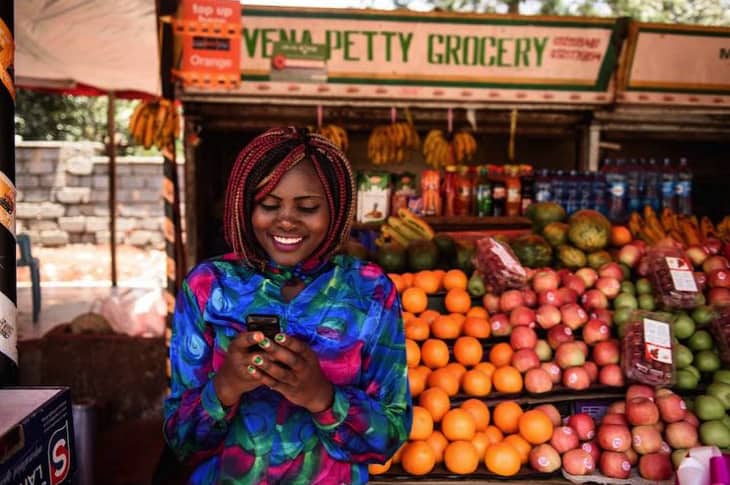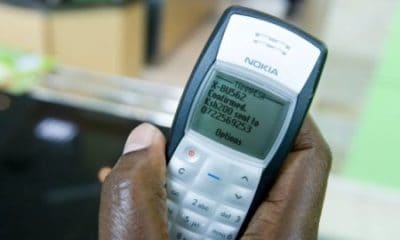
IPFS News Link • Africa: On the Map
Nearly 200,000 Kenyans Lifted Out Of Poverty Thanks To Mobile Money
• http://www.trueactivist.comMobile money has especially changed the lives of households headed by females.

Credit: Good News Network
Mobile money is something that is taken for granted in developed nations where smart phones are the norm and credit cards are the prevailing form of payment. However, in many countries neither of these technologies are readily available, making it difficult for business owners and consumers to easily transfer payments.
Rural areas in developing nations are often steeped in poverty and many of these areas have been seeking a way to improve their economy for a long time. It's time-consuming and tiresome to carry money from one place to another, especially in rural areas where the spaces are so far apart. That's why M-PESA, Kenya's mobile money system that relies on text messages and a simple banking infrastructure, has completely revolutionized the way money is managed and transferred amongst hundreds of thousands of Kenyans.
A new study looked at how the expansion of M-PESA improved households and found that about 194,000 households benefitted tremendously from using mobile money regularly. Those households that were headed by females saw the most growth and all of the families were lifted out of poverty, effectively helping about 2 percent of households in Kenya.
Not only did M-PESA help to make money management more efficient, it encouraged women to change occupations to a more business or retail-oriented occupation. The cost-effective way of sending and receiving money via easy text messages affected the user's willingness to save more money and spend more wisely. Tavneet Suri, Associate Professor of Applied Economics at MIT's Sloan School of Business, worked on the study and said,
"We saw that when M-PESA came to an area, women shifted their occupations and their savings went up. We estimate that about 185,000 women shifted occupations from subsistence farming to business or retail sales."

Credit: Safaricom M-Pesa
The study took place over a period of 6 years, which allowed researchers to conclude that M-PESA helped to improve the financial resilience in Kenyans in the long-term. While other modes of financial assistance have had mixed results, mobile money has proven to actually lift people even from extreme poverty and helped them maintain stability with their personal finances. With M-PESA, users have also been able to better bounce back from unexpected setbacks. Since users aren't forced to carry money back and forth just to make a simple payment, their time is freed up and they can use it for something more productive.
While this system has worked well in Kenya, other countries are less inclined to adopt it because there isn't as much incentive in terms of cost. Kenya's other modes of transferring money are extremely costly, and it was initially widespread in the country because of conflicts. However, it is exceedingly beneficial when considering time and effort, and that's why other nations are becoming more open to adopting similar systems. The study also opened up a dialogue about how money management is affected by gender politics, and Annie Duflo, Executive Director of Innovations for Poverty Action, explained,





























